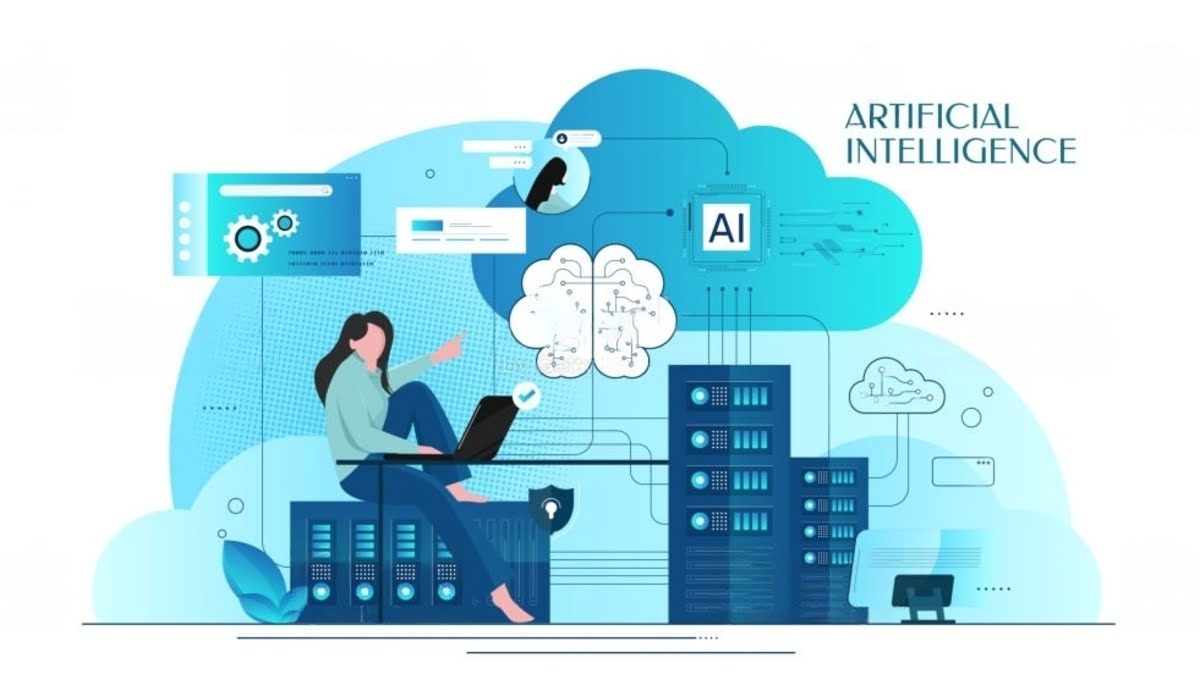CLOUD COMPUTING
Is Cloud Computing the Future of IT?

Introduction
The landscape of information technology (IT) is constantly evolving. Among the revolutionary concepts that have emerged, cloud computing stands out as a game-changer. With its ability to provide on-demand access to computing resources and data storage, cloud computing has sparked conversations about its potential to shape the future of IT. This article delves into the various aspects of cloud computing, discussing its significance, benefits, challenges, and the reasons it’s considered a driving force in the IT industry.
Is cloud computing the future of IT?
The future of IT is closely intertwined with cloud computing. The increasing reliance on digital solutions, the demand for scalable infrastructure, and the pursuit of cost-effective IT operations have all converged to make cloud computing an integral part of this future.
Organizations across diverse sectors are recognizing the value of transitioning from traditional on-premises setups to cloud-based systems. This shift enables them to streamline operations, enhance collaboration, and achieve greater agility in adapting to changing market dynamics.
Benefits of Cloud Computing
- Scalability and Flexibility: Businesses can scale their resources up or down as necessary thanks to cloud computing. Because of their ability to adapt, organizations can effectively manage changes in demand without expending excessive amounts of resources.
- Cost Savings: By eliminating the need for extensive physical infrastructure, cloud computing reduces capital expenditures. Businesses can operate with predictable operating expenses, freeing up funds for innovation and growth.
- Global Accessibility: Cloud services provide remote access to data and applications from anywhere with an internet connection, enabling seamless collaboration among geographically dispersed teams.
- Rapid Deployment: Traditional IT infrastructure setup can be time-consuming. Cloud solutions offer rapid deployment, allowing businesses to bring products and services to market faster.
- Automatic Updates: Cloud service providers regularly update and maintain the underlying infrastructure, ensuring that businesses always have access to the latest technology without manual intervention.
Challenges and Considerations
While the future of IT seems destined for the cloud, there are challenges that organizations must navigate:
- Security Concerns: Storing sensitive data off-site raises security concerns. However, reputable cloud providers implement robust security measures to safeguard data.
- Data Privacy: Compliance with data protection regulations becomes crucial when data is stored across international borders. Businesses must ensure they adhere to relevant laws.
- Downtime Risk: Reliance on cloud services means that any downtime on the provider’s end can disrupt operations. Implementing backup and redundancy strategies is vital.
- Vendor Lock-In: Switching between cloud providers can be complex and costly. Organizations should carefully evaluate providers before committing.
Impact on Industries
Cloud computing’s impact is pervasive across industries.
- Healthcare: Cloud technology enables secure storage and sharing of patient records, facilitates telemedicine, and accelerates medical research.
- Finance: Financial institutions leverage the cloud for real-time transaction processing, risk analysis, and customer service.
- Education: Cloud-based learning platforms offer remote education, collaborative tools, and personalized learning experiences.
- E-commerce: Scalable infrastructure helps e-commerce platforms manage traffic spikes during sales and offer personalized shopping experiences.
Here are some specific examples of how cloud computing is being used to transform businesses today:
- Netflix uses cloud computing to stream movies and TV shows to millions of customers around the world.
- Amazon uses cloud computing to power its e-commerce platform and other businesses.
- Google uses cloud computing to provide its search engine, email, and other services.
- Microsoft uses cloud computing to offer its Office 365 suite of productivity applications.
The Future of Cloud Computing in 2027: From Technology to Business Innovation
Conclusion
The trajectory of IT is undeniably pointing toward cloud computing. With its remarkable benefits and potential to transform industries, cloud computing has earned its place as the linchpin of technological evolution. As businesses continue to adapt to the changing digital landscape, embracing cloud solutions can lead to enhanced efficiency, innovation, and competitiveness. So, is cloud computing the future of IT? Without a doubt, it’s a future that’s already here.
FAQs
How does cloud adoption impact staffing?
Cloud adoption can shift IT staff responsibilities from routine maintenance to more strategic tasks like optimizing cloud infrastructure and enhancing cybersecurity.
Can I migrate existing applications to the cloud?
Yes, many applications can be migrated to the cloud. However, careful planning and potentially some adaptation may be required to ensure optimal performance.
What if my internet connection is unreliable?
While cloud services require internet connectivity, many providers offer offline access options, and redundancy strategies can mitigate the impact of connection issues.
How is cloud computing changing the IT industry?
Because of its scalability, improved collaboration, data security, mobility, simplified IT management, business continuity, and superior analytics, cloud computing has completely changed how businesses operate.

 FUNDAMENTAL2 months ago
FUNDAMENTAL2 months agoHow Cloud Computing Improving Customer Service Processes

 FUNDAMENTAL7 months ago
FUNDAMENTAL7 months agoWhat is cloud computing? A Comprehensive Guide

 FUNDAMENTAL4 months ago
FUNDAMENTAL4 months agoHow can Cloud Technology Help Small Businesses ?

 FUNDAMENTAL7 months ago
FUNDAMENTAL7 months agoEvolution of Cloud Computing : A Well-Explained

 CLOUD COMPUTING2 months ago
CLOUD COMPUTING2 months agoWhat Is VlAN and VSAN In Cloud Computing?

 FUNDAMENTAL2 months ago
FUNDAMENTAL2 months agoIaaS PaaS and SaaS in cloud computing

 FUNDAMENTAL2 months ago
FUNDAMENTAL2 months agoWhich is a fundamental attribute of cloud computing?

 CLOUD COMPUTING2 months ago
CLOUD COMPUTING2 months agoHow to Make Your Own Cloud Storage : A Step-by-Step Guide









